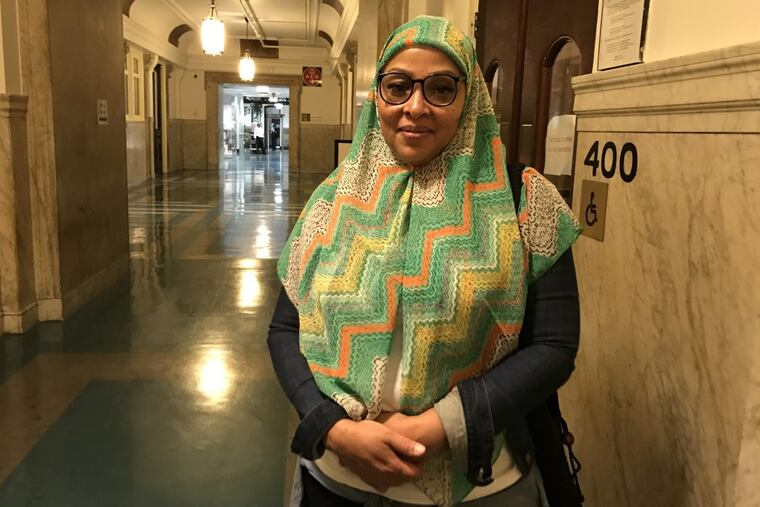How you can help get accused people out of jail | Opinion
We must try to minimize risk by accounting for and meeting the human needs of accused people, rather than restricting their liberty.

One recent Friday morning, Jojuan Powell made her way to City Hall. There, at the invitation of Councilmen Derek Green and Curtis Jones Jr.'s special committee on criminal justice, she told her story — of a mother who rushed to stop a fight in her Mantua neighborhood and who was charged with assault herself when a teen suffered a broken bone in the fight, and how she could have waited in jail for four months for her day in court because of a $2,500 bail she couldn't pay.
Powell, who has a son, was bailed out of jail five days into her pretrial incarceration. She's one of hundreds bailed out through the passionate leadership of Mama's Bail Out Day, organized by black leaders and allies in cities nationwide, and led by Southerners on New Ground, the Movement for Black Lives, and others. When she returned home, the prosecution dismissed her charges, something that happens almost 30 percent more often when an accused person is released pretrial, according to recent studies.
Organizers of the Philadelphia Community Bail Fund, which has continued bailing out black mothers in the wake of Mama's Bail Out Day, see Powell's case as proof of a long-understood truth: that the vast majority of accused people could be released safely into their communities pretrial, without cash bail or other costly or punitive supervision.
Related: Can a Philly community bail fund fix our criminal-justice system?
Bail funds like ours are proving something that is important for Philadelphia leaders reforming our bail system to understand: that bringing our people home is urgent, and needed.
Maddie Hanna's recent Inquirer article, "N.J. bail reform gets top grade from advocates," focuses on our neighbor New Jersey's hard-won efforts to all but eliminate cash bail from the pretrial system. Since implementing bail reform in January of this year, bail has only been set for 33 accused people. The Pretrial Justice Institute (PJI), the convening and advocacy organization, gives New Jersey an "A" for its efforts (while giving Pennsylvania a "D").
But jurisdictions like New Jersey are putting barriers that replace bail in between people and their liberty. One of the three major factors that went into PJI's grade was whether the state used a "public safety" or "risk assessment algorithm" to guess whether an accused person will get arrested again or not show up for court, if released to their families and communities pretrial.
Almost all risk-assessment tools use static criminal justice data as proxies for crime — including arrests or the convictions that stem from them — while admitting that communities of color are overly targeted and policed. Journalists and independent scientists have raised alarms that risk-assessment algorithms can embed racial and other bias into criminal justice decision-making in ways that obscure public oversight instead of making the system fairer.
New Jersey got an "A" because they are letting far more people out of jail, but the jury is definitely out as to whether someone like Powell would get to go home if an unaccountable algorithm stood between her and her liberty.
When we pay the bails of our neighbors locked up on State Road, we learn that we could end cash bail today, without a risk-assessment algorithm, and the vast majority of community members wouldn't be risks to their neighborhoods. We learn that others — if their needs for transportation, court reminders, and child care were met — would return to court for their next court date.
We must try to minimize risk by accounting for and meeting the human needs of accused people, rather than restricting their liberty.
That's why Powell's story, and the stories of the thousands of black, brown, immigrant, and poor people kept from families and homes by onerous cash bails, is so important.
The lessons we learned from Mama's Bail Out Day, the bail fund it spawned, and the many funds around the country paying bails for our incarcerated loved ones prove to us that we could end bail today for a vast majority of people, meeting the needs of some to help them show up for court and keep them safe in their communities, without risk-assessment algorithms and the potential problems they embed. If we do use such algorithms, we must include communities impacted by them in testing and oversight. And we must move together as a city to end bail as quickly as possible, and decarcerate the thousands of people who deserve the right to live with dignity in their communities before their day in court.
Hannah Sassaman is the policy director at Media Mobilizing Project, and a current Soros Justice Fellow.